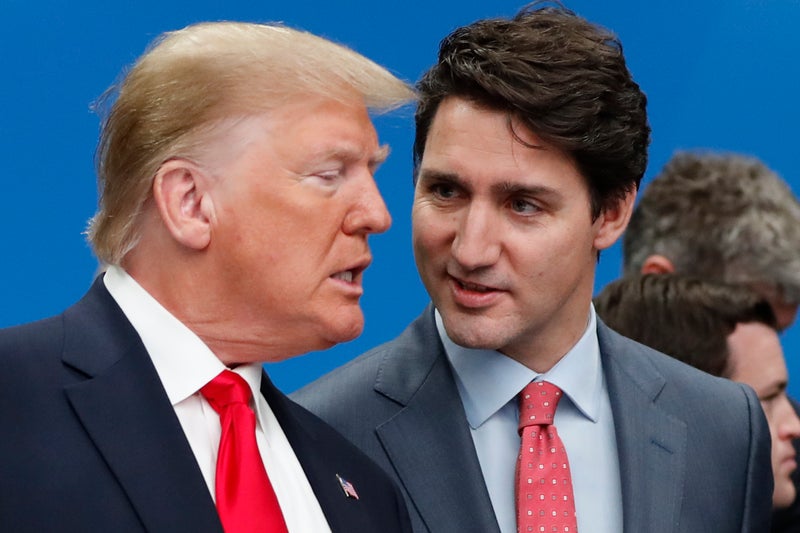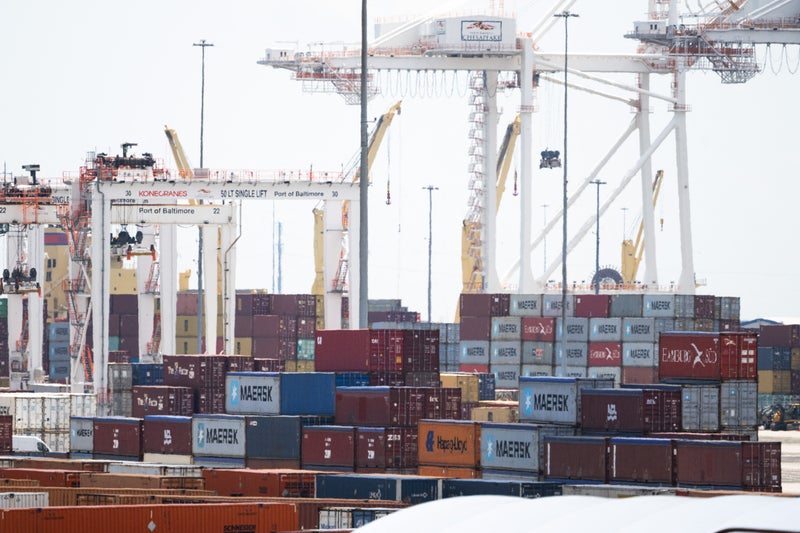What's going on with Trump and tariffs and what does it all mean?
What's going on with Trump and tariffs and what does it all mean?
Share:
Donald Trump has ordered sweeping tariffs on Mexico, Canada and China, kicking off a trade war that will affect the globe. Here we look at the tariffs and what they all mean for the globe:. What are the tariffs?. The US president has confirmed that goods from Mexico and Canada will face 25% tariffs, while 10% taxes will be implemented on imports from China. Canadian energy, including oil, natural gas and electricity, will be taxed at a 10% rate.
Trade war latest: Follow live updates. The levies are expected to all take effect on Tuesday, with Mexico and Canada both announcing counter-tariffs of their own. Mr Trump has also threatened to go further, saying tariffs on the European Union would be implemented "pretty soon". Please use Chrome browser for a more accessible video player. When questioned about the UK, the president said Britain was "out of line" when it came to trade but he thought the situation could be "worked out" without the use of tariffs.
What are tariffs, and how do they work?. Put simply, tariffs are taxes on goods that are brought in from other countries. By raising the price of imports, tariffs aim to protect domestic manufacturers by making locally made goods cheaper. Contrary to what Mr Trump has said, it is not foreign countries that pay tariffs, but the importing companies that buy the goods. For example, American businesses like Walmart or Target pay tariffs directly to the US treasury.
In the US, these tariffs are collected by customs and border protection agents, who are stationed at 328 ports of entry across the country. To compensate for tariffs, companies then put up their prices, so customers end up paying more for goods. Tariffs can also damage foreign countries as it makes their products pricier and harder to sell. This can lead to them cutting prices (and sacrificing profits) to offset levies and maintain their market share in the US.
Why is Trump doing this?. Mr Trump has argued that imposing higher levies will help reduce illegal migration and the smuggling of the synthetic opioid fentanyl to the US. On Mexico, the US leader claimed drug traffickers and the country's government "have an intolerable alliance" that in turn impacts national security. He further claimed that Mexican drug cartels are operating in Canada. On China, he said the country's government provides a "safe haven" for criminal organisations.
He has also pledged to use tariffs to boost domestic manufacturing. "We may have short term some little pain, and people understand that. But long term, the United States has been ripped off by virtually every country in the world," he said. His aim appears to be to force governments in those countries to work much harder to prevent what he calls illegal migration and the smuggling of the deadly drug fentanyl. But, even if the countries do not do what America wants, it will still potentially benefit firms that produce goods in the US.
What could the consequences be?. Mexico and Canada are two of America's largest trading partners, with the tariffs upending decades-old trade relationships. Goods that could be affected most by the incoming tariffs include fruit and veg, petrol and oil, cars and vehicle parts and electronic goods. New analysis by the Budget Lab at Yale University found that the average US household would lose the equivalent of $1,170 US dollars (£944) in income from the tariffs.
Read more: This is how US consumers will be affected. The research also found that economic growth would slow and inflation would worsen, as the tariffs forced up prices. Immediate consequences were felt on Monday morning, as shares on Asian markets took a tumble. Japan's Nikkei opened down 2.9% while Australia's benchmark - often a proxy trade for Chinese markets - fell 1.8%. Stocks in Hong Kong, which include listings of Chinese companies, fell 1.1%.
UK stocks were also significantly down, with the benchmark FTSE 100 index - containing the most valuable companies on the London Stock Exchange - dropped more than 1.3% on the open. In Europe, stock markets opened sharply lower while the euro slid 1.3%. The Europe-wide index of companies, the Stoxx 600 dropped as much as 1.5%. While Mexico's peso hit its lowest in nearly three years. 'Very scary path'.
Sky News' data and economics editor Ed Conway said the long term consequences of a trade war is that "everyone gets poorer", which is what happened to the world before World War Two. "As countries get poorer, they get frustrated and you get more nationalism," Conway said, speaking on Friday's Sky News Daily podcast. "This is exactly what happened in the 1930s, and the world ended up at war with each other. It is a very, very scary path, and yes, we are basically on a potential of that path.".






















